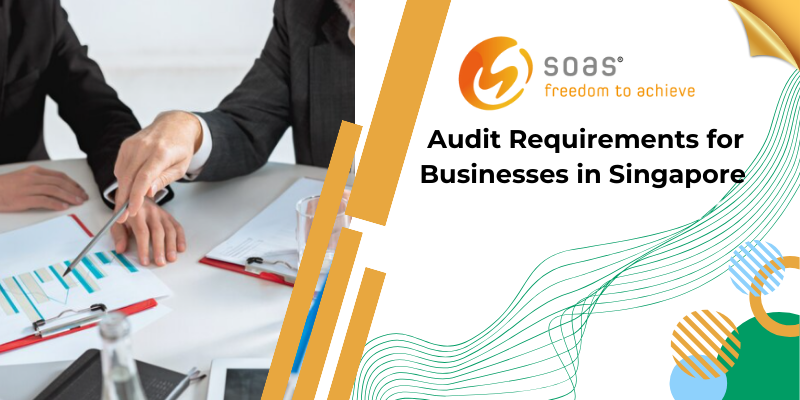Audit Requirements for Businesses in Singapore

1. Auditor Appointment
Singaporean businesses are obligated to appoint an auditor within three months from the date of their incorporation. This prompt appointment sets the stage for the subsequent adherence to regulatory standards.
2. Yearly Audits
Annual audits of the Profit and Loss Account and the balance sheet are imperative for businesses in Singapore. This routine examination ensures a comprehensive overview of financial performance and stability, aligning with the principles of accountability and good governance.
3. Limited Liability Companies
Limited liability companies in Singapore face an additional responsibility – the issuance of an Estimate of Chargeable Income. This estimate must be submitted to the Inland Revenue Authority, adding a layer of financial disclosure to the audit process.
4. Singapore Standard on Auditing
The Singapore Standard on Auditing delineates the documentation required for a thorough audit. The format and content of this documentation are contingent on factors such as the nature and size of the company. This comprehensive set may include auditing plans, checklists, letters, analyses, and various other components.
5. Nature and Size Considerations
The nature and size of the company play a pivotal role in determining the format and content of audit documentation. This flexibility ensures that the documentation aligns with the unique characteristics and intricacies of each business.
6. Acceptable Documentation Formats
Audit documentation can be maintained either in physical or electronic formats and may encompass auditing plans, checklists, letters, analyses, and more. However, it’s crucial to note that drafts of working papers, incomplete financial accounts, and duplicate documents are deemed unacceptable for inclusion in the audit documentation.
7. Retention of Audit File
Once compiled, the audit paperwork is consolidated into a final audit file, which must not be disposed of until the end of the retention term. This practice ensures the availability of comprehensive records for reference and regulatory compliance.
8. Annual Returns Submission
Within one month of the annual shareholders meeting, Singaporean corporations must submit their annual returns to the Accounting and Corporate Regulatory Authority (ACRA). Newly incorporated businesses, within 18 months of registration, are obliged to submit their first annual return. Notably, the audited accounts for new businesses cannot be older than six months, underscoring the importance of timely and current financial reporting.
In conclusion, the audit requirements for businesses in Singapore are not just legal obligations but vital mechanisms for maintaining financial integrity, accountability, and adherence to regulatory standards. Navigating these requirements with diligence ensures that businesses operate in a manner that is both transparent and compliant with the robust framework of Singapore Commercial Law.
About SOAS
SOAS, a distinguished accounting and auditing firm headquartered in Singapore, has been delivering top-notch professional services for the past 15 years. Throughout its tenure, the firm has garnered a remarkable reputation, underscored by an impressive record of accomplishment of 148+ positive reviews on Google. SOAS takes pride in its commitment to excellence and client satisfaction.
The firm stands out by deploying a highly skilled team of seasoned accountants and auditors. These professionals bring a wealth of experience and expertise to the table, ensuring that clients receive comprehensive and reliable financial services. With a focus on maintaining the highest standards in the industry, SOAS’s team provides tailored solutions that meet the unique needs of each client.
Beyond its longevity and positive reviews, SOAS distinguishes itself by not only offering standard accounting and auditing services but also by embracing a seasonal approach to staffing. This flexibility allows the firm to adapt to varying workloads and client demands throughout the year, ensuring that clients receive personalized attention and timely, accurate financial insights.
As SOAS continues to thrive in the dynamic landscape of accounting and auditing, its seasoned professionals and client-centric approach position it as a trusted partner for businesses seeking comprehensive financial solutions in Singapore and beyond.
